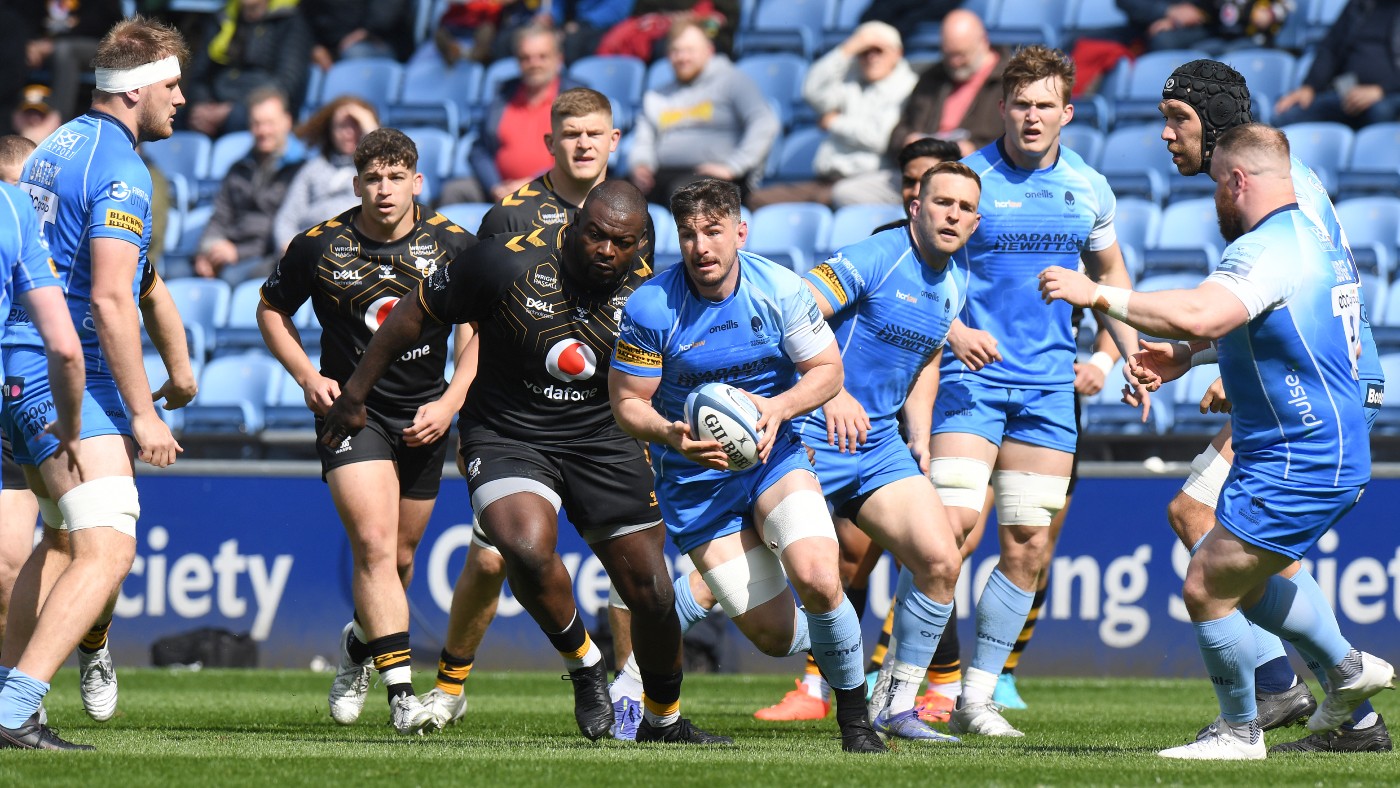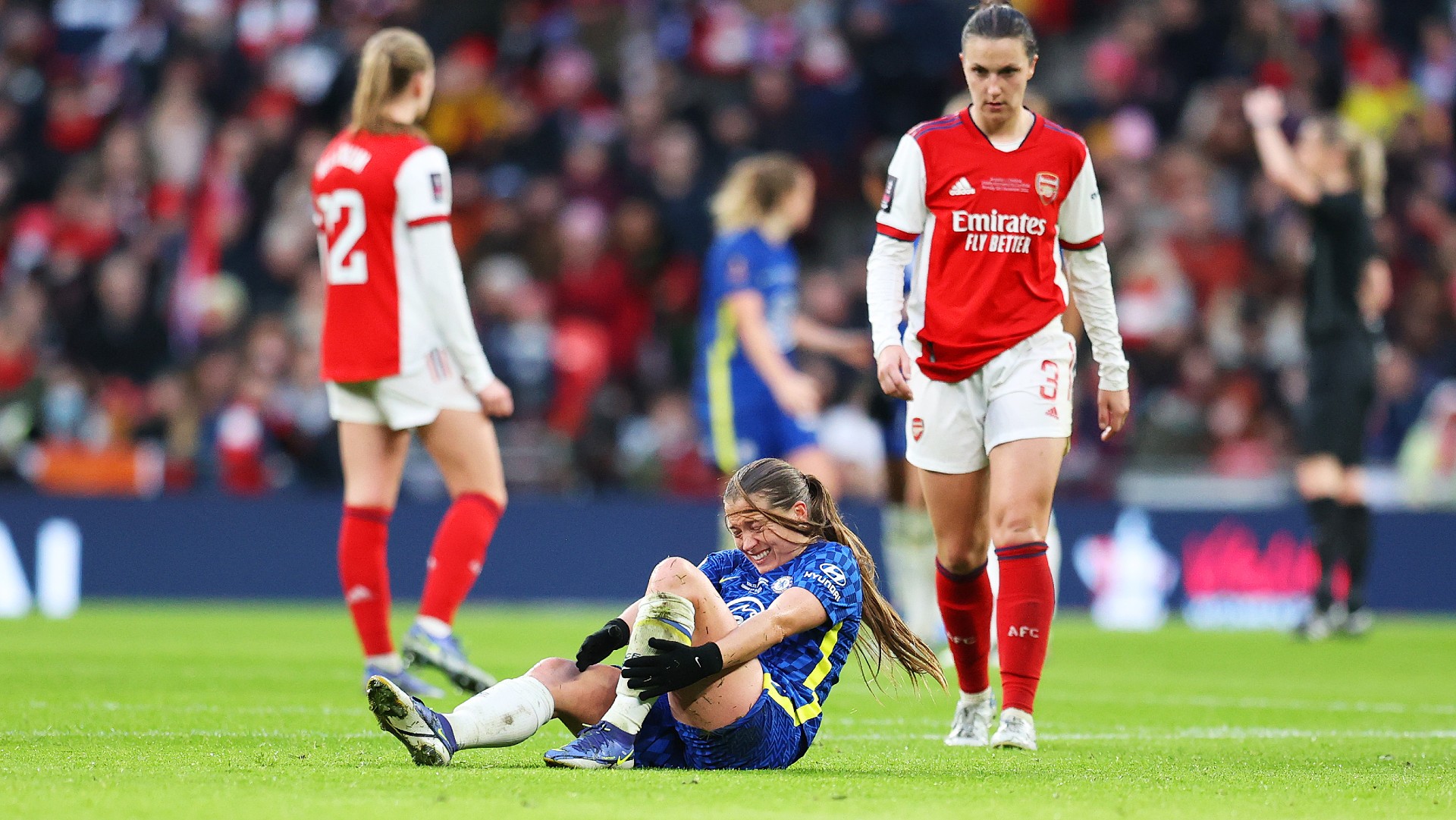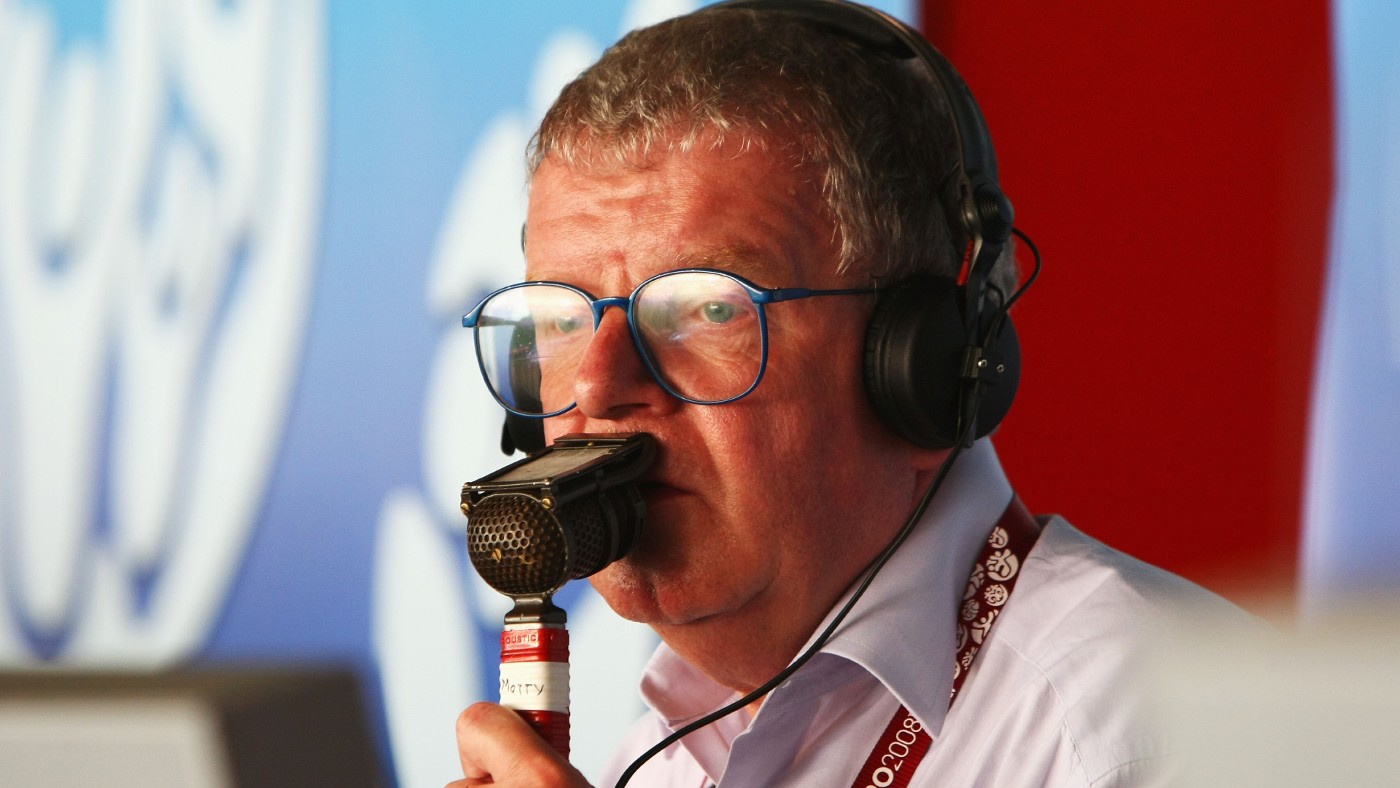English rugby union is ‘broken’: how can it be fixed?
Financial crisis has seen the demise of Worcester and former champions Wasps

A free daily email with the biggest news stories of the day – and the best features from TheWeek.com
You are now subscribed
Your newsletter sign-up was successful
Bill Sweeney, chief executive of the Rugby Football Union (RFU), has vowed to “sort the game out” amid a financial crisis that has engulfed the sport in England.
Earlier this month Worcester Warriors were suspended for the remainder of the 2022-23 Premiership season, and relegated to the Championship, following the club’s collapse into partial liquidation. And now Wasps have been forced into administration will be relegated from the top tier of English club rugby.
The demise of Worcester had already thrown the Premiership “into turmoil”, said BBC Sport. And with Wasps also departing, the “financial viability of the league has come sharply into focus”.
The Week
Escape your echo chamber. Get the facts behind the news, plus analysis from multiple perspectives.

Sign up for The Week's Free Newsletters
From our morning news briefing to a weekly Good News Newsletter, get the best of The Week delivered directly to your inbox.
From our morning news briefing to a weekly Good News Newsletter, get the best of The Week delivered directly to your inbox.
Sweeney believes the current model is “broken” and clubs have been “living beyond their means” for too long. Premiership clubs were “losing £4m to £5m a year” prior to the pandemic and Covid has “exacerbated that”. The sport has been “relying on wealthy benefactors for some time”.
What happened at Worcester?
Founded in 1871, Worcester climbed the rugby pyramid from the eighth tier to the Premiership, said Phil Wilkinson-Jones in the Worcester News.
In August the club’s accounts were frozen after a winding-up petition was issued by HMRC, then in September WRFC Trading Limited, the company that owns the rugby club, was placed in administration and suspended from all competitions. This month WRFC Players Limited, the company that employs the players and staff, was wound up in court.
Worcester ended up in trouble after being “saddled with more than £25m of debt”, including at least £6m in unpaid tax, said PA Sport. Players and staff “had not received their full wages” and a lack of funds led to “major operational shortcomings”.
A free daily email with the biggest news stories of the day – and the best features from TheWeek.com
Worcester’s director of rugby Steve Diamond said the club’s winding-up order was the “darkest day for English rugby”. On 5 October Diamond tweeted that “we thought we could turn the tanker around”, but it’s ended up “like the Titanic”. The “ship has sunk” and the captains are “nowhere to be seen”.
And what about Wasps?
Four-time Premiership winners and two-time European champions Wasps will follow Worcester into England’s second tier – “provided they can find new owners and continue to exist”, said Michael Cantillon on Sky Sports. They are one of England’s “biggest and most famous” clubs, but today announced that 167 staff – including the entire playing and coaching staff – are being made redundant.
Wasps have “twice filed notice to get insolvency experts in to help with their debts”, which run to “tens of millions of pounds”, said BBC Sport. The Coventry-based club had been hopeful of “securing new funding to help with a £35m debt owed to bond holders following their relocation from London in 2014”. But despite talks “ongoing” with interested parties, the club “have been forced to take action”.
Why are clubs struggling?
Covid “undoubtedly exacerbated” the challenges that Premiership rugby clubs were already facing, said Laura Scott on BBC Sport. However, most clubs were “making losses before the pandemic and there were already concerns about the sustainability of what clubs were spending on player wages compared to their incomes”. One club owner told the BBC that the model is “completely flawed”.
While the impact of the pandemic “cannot be ignored”, Worcester “cannot hide behind Covid as a catch-all excuse”, said PA Sport. Factors also include “rising wages for top players and coaches”, a “constant contest to lure in punters” and continued battles to “boost match excitement”.
As league officials “grapple with the crisis engulfing the domestic game”, they “cannot rule out more clubs joining Worcester and Wasps in being suspended from the league on financial grounds”, said Gerard Meagher in The Guardian. Premiership Rugby chief Simon Massie-Taylor warned that he hasn’t been given any “direct red flags” from clubs, but added that until he gets complete financial oversight he can’t give a “direct answer”.
What happens next?
The situation at Worcester and Wasps has “opened up the possibility of long overdue reform at the top of English rugby”, said Brian Moore in The Telegraph. The RFU should “seize this chance” to “extend reform” to the grassroots game and secure rugby’s long-term future.
RFU chief Sweeney believes a streamlined Premiership makes financial sense and would improve overlap between the domestic and international game, Sky Sports reported. A ten-team first division is seen as “viable for a number of reasons”, and “we’ve been saying for quite some time now that less is more”.
“Everything is on the table”, including a number of “nuclear” options to reshape rugby, said Charlie Morgan in The Telegraph. These include central contracts for England players funded by the RFU.
The financial demise of the clubs has “triggered a review over the sustainability of the sport”, said BBC Sport, and any changes are “expected to happen in time for the 2024-25 season”.
Mike Starling is the former digital features editor at The Week. He started his career in 2001 in Gloucestershire as a sports reporter and sub-editor and has held various roles as a writer and editor at news, travel and B2B publications. He has spoken at a number of sports business conferences and also worked as a consultant creating sports travel content for tourism boards. International experience includes spells living and working in Dubai, UAE; Brisbane, Australia; and Beirut, Lebanon.
-
 El Paso airspace closure tied to FAA-Pentagon standoff
El Paso airspace closure tied to FAA-Pentagon standoffSpeed Read The closure in the Texas border city stemmed from disagreements between the Federal Aviation Administration and Pentagon officials over drone-related tests
-
 Political cartoons for February 12
Political cartoons for February 12Cartoons Thursday's political cartoons include a Pam Bondi performance, Ghislaine Maxwell on tour, and ICE detention facilities
-
 Arcadia: Tom Stoppard’s ‘masterpiece’ makes a ‘triumphant’ return
Arcadia: Tom Stoppard’s ‘masterpiece’ makes a ‘triumphant’ returnThe Week Recommends Carrie Cracknell’s revival at the Old Vic ‘grips like a thriller’
-
 Curse of the Lionesses: what’s causing spate of England women’s football injuries?
Curse of the Lionesses: what’s causing spate of England women’s football injuries?Under the Radar Several key players are out of the World Cup, raising concerns about hectic schedules, sub-par pitches and sexism
-
 John Motson dies aged 77: five best Motty moments
John Motson dies aged 77: five best Motty momentsUnder the Radar The legendary BBC football commentator delivered countless iconic lines in 50-year career
-
 ‘A blaze of excessive riches’: LIV Golf’s first season comes to an end
‘A blaze of excessive riches’: LIV Golf’s first season comes to an endUnder the Radar Dustin Johnson scooped $35m in winnings from the Saudi-backed golf series
-
 What next for Cristiano Ronaldo? How the relationship with Man Utd turned sour
What next for Cristiano Ronaldo? How the relationship with Man Utd turned sourUnder the Radar Portugal star has ‘almost certainly’ played his last game for United as he is dropped for Chelsea clash
-
 Playing the long game: will the Glazers sell Manchester United?
Playing the long game: will the Glazers sell Manchester United?Under the Radar Supporters’ pain ‘might go on for some time yet’, but win over Liverpool has lifted spirits
-
 Commonwealth Games: a ‘modern and edgy’ or ‘uncertain’ future?
Commonwealth Games: a ‘modern and edgy’ or ‘uncertain’ future?Under the Radar Birmingham may be the last time the multi-sport event ‘makes such a big noise’
-
 F1 ‘silly season’ hits top speed as 2023 grid takes shape
F1 ‘silly season’ hits top speed as 2023 grid takes shapeUnder the Radar Twitter explodes with news of driver moves, denials and rumours
-
 Lewis Hamilton on his F1 future: ‘I have plenty of fuel in the tank’
Lewis Hamilton on his F1 future: ‘I have plenty of fuel in the tank’Under the Radar Seven-time world champion finished second on his 300th grand prix start